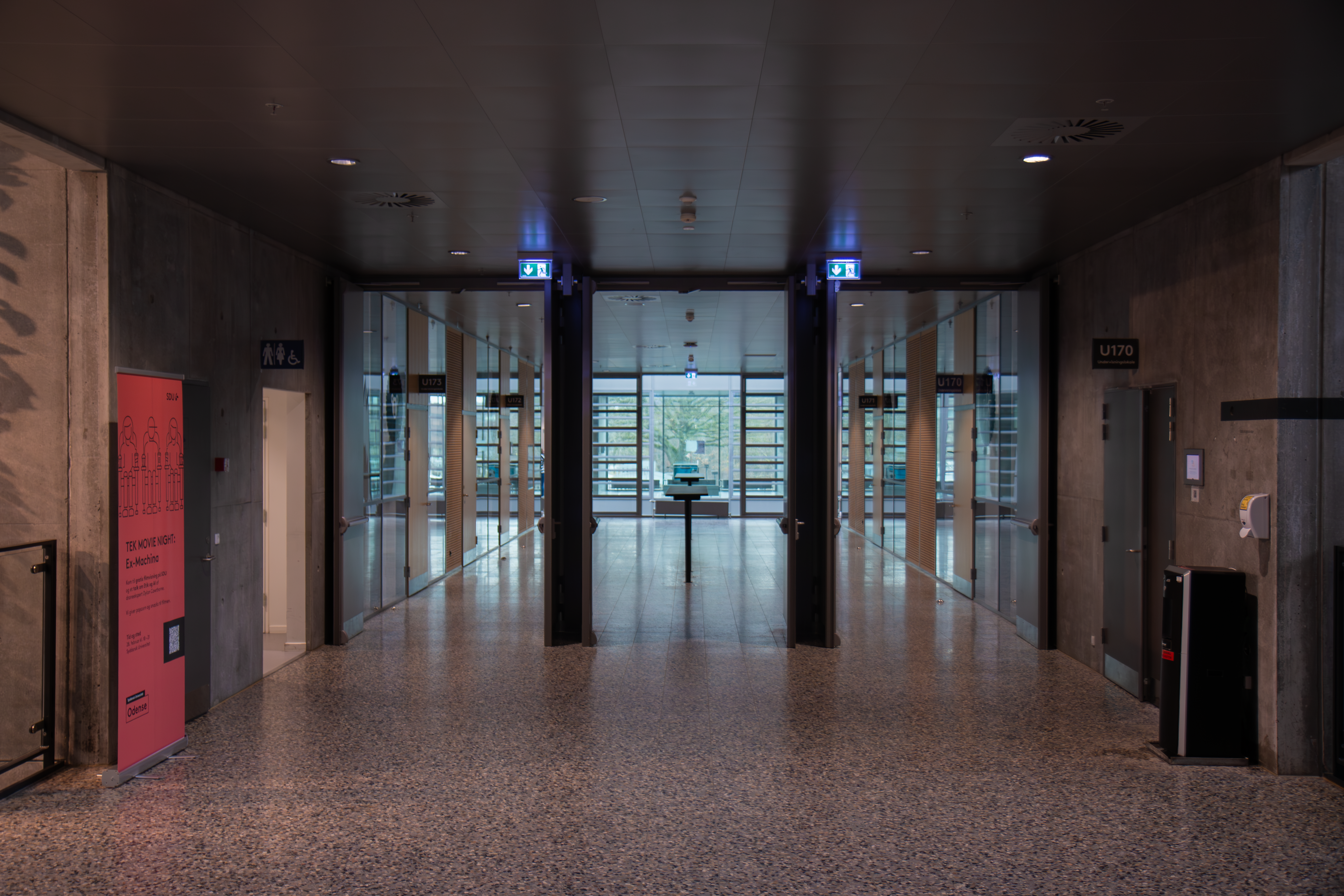
Ansatte: Fordybelsesrum skal genåbnes
Over 60 ansatte på SDU har i dag sendt et åbent brev til ledelsen om at få genåbnet fordybelsesrummet på universitetet, som blev lukket tilbage i februar. Læs hele brevet her.
D. 19. februar 2025 blev SDU’s ”Rum til fordybelse” lukket ned. Beslutningen blev taget af ledelsen, fordi rummet er blevet indrettet med artefakter, som gør, at det ikke fremstår neutralt for alle studerende og ansatte. Indtil videre har ledelsen meldt ud, at det vil forblive midlertidigt lukket frem til d. 1. september 2025.
Over 60 ansatte har nu skrevet et åbent brev til ledelsen om at få fordybelsesrummet genåbnet. Ifølge de ansatte der har skrevet under, er deres arbejdsmiljø og velvære på universitetet forværret efter lukningen. De efterspørger mere åben kommunikation og transparens fra ledelsens side, da de ikke føler, at de er blevet inddraget i beslutningen.
RUST Studentermedie har til formål at omfavne mangfoldigheden af universitetets tilhørere, og derfor kan hele brevet læses herunder. Eventuelle kommentarer til brevet kan sendes direkte til afsenderne Ahmad Rzgar Hamid og Vildan Amine Türkmen.
To whom it may concern,
Closure of the Reflection Room
On February 19th, the staff were taken aback by the sudden and unannounced closure of the reflection room at the main campus of the University of Southern Denmark. This room, a sanctuary for the academic and technical staff and students, has served as a place for reflection, prayer and rejuvenation, accommodating various spiritual and cultural practices. As employees, we firmly believe that closing the reflection room without consultation and transparency undermines the university´s values and adversely affects the working environment. We acknowledge that the administration considers the temporary closure necessary due to the presence of elements that, in their view, compromise the room´s perceived neutrality for all students and staff. However, in an academic and inclusive context, neutrality in shared spaces should not be conflated with the complete absence of cultural, spiritual, or personal expression; instead, it means creating an environment where everyone feels respected and included, regardless of their background or beliefs. This was the main reason for establishing the reflection room in 2006, to offer a more suitable space for reflection and prayer outside classrooms and restrooms and to provide a welcoming place for all cultures and ethnicities1. SDU is dedicated to attracting international students and promoting diversity, making the reflection room essential for providing an inclusive space where students of all backgrounds and beliefs feel respected and supported.
By definition, a reflection room is a quiet, inclusive space designed for individuals to engage in personal reflection, meditation, prayer, or relaxation and open to people of all backgrounds and beliefs, providing a peaceful environment for spiritual, mental, or emotional well-being. Numerous prestigious universities, notably the University of Cambridge2, Harvard University3,4, and Stanford University5 have successfully implemented reflection spaces for students and staff, which positively impact well-being and foster an environment of respect for diverse needs. Their approach to reflection spaces demonstrates a strong commitment to accommodating the diverse nature of international institutions by clearly respecting and valuing differences. To date, SDU has provided an excellent reflection room for students and staff, offering a peaceful space for mindfulness and relaxation. However, this recent action has led to considerable disappointment without any warning or explanation.
We understand that concerns have arisen regarding furnishing the room with non-neutral items, although it remains unclear what exactly these items are. After consulting with numerous users of the reflection room, we suspect that the items in question are small rugs brought in by individuals for personal use. Firstly, we have not found any mention of rules pertaining to the reflection room on SDUnet or within the room itself. We would highly appreciate being directed to those. Secondly, we wish to emphasise that the rugs are not religious items; they are used because the carpet tiles are too rigid and uncomfortable. Since SDU staff do not clean the room, users are encouraged to use the rugs or a vacuum to keep the space clean. When asked, several users of the room reported encountering silverfish and other insects. Lastly, we are highly disappointed by the one-sided nature of the communication. Had we been consulted, we could have suggested numerous solutions that would align with SDU´s goals while also addressing the needs of all involved. From a professional standpoint, open communication could have helped ensure that the decision was more reflective of all viewpoints, contributing to a positive and inclusive environment. Due to the lack of communication, SDU missed an opportunity to foster trust and maintain transparency in their decision making.
We strongly urge SDU to reinstate the reflection room and engage with staff and students to address their needs. The closure of the reflection room has already significantly affected the work environment and well-being of our staff and students. We believe in an institution that values inclusion and mutual respect, where communication and openness are paramount. Together, we remain committed to fostering an inclusive and thriving community, and the reinstatement of the reflection room is an essential step in this direction.
Yours sincerely,
Ahmad Rzgar Hamid,
PhD Student, Faculty of Engineering
Vildan Amine Türkmen,
Postdoc, Faculty of Science
And over 60 other colleagues.
1 6. februar 2007, Jyllands-Posten, Side 4, (Indland), Kristoffer Pinholt
3 https://academicunionization.harvard.edu//faq/non-residential-spaces